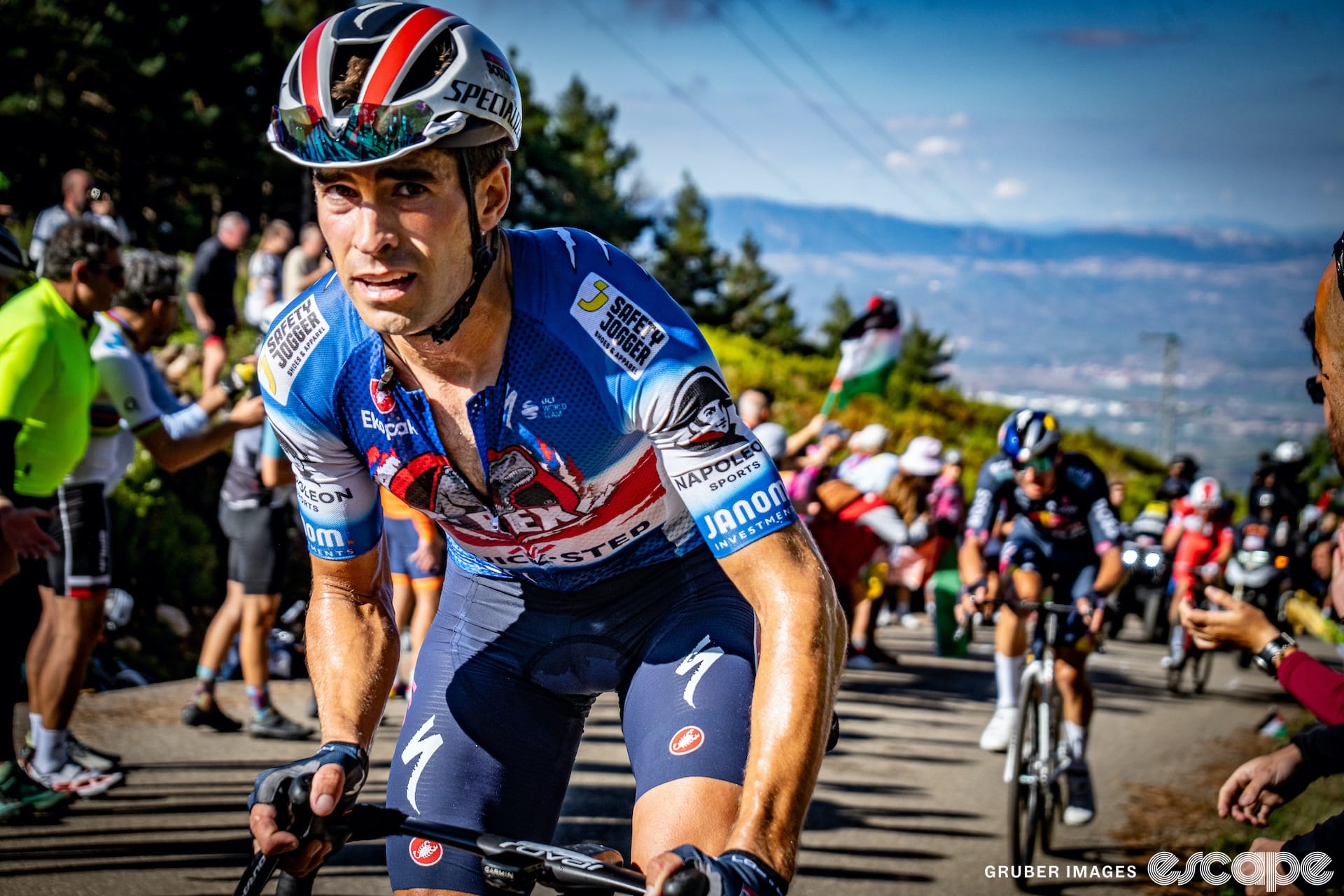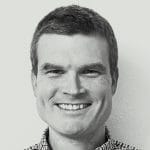In the latest entry in our Ten Questions series, Escape Collective caught up with Soudal-Quick Step's Mikel Landa, who has spent more than a decade battling for Grand Tour stages and GC podiums. Along the way, he has cultivated the almost indescribable underdog mystique of Landismo, entertaining fans win or lose.
Coming off a year that saw him ride to fifth overall at the Tour de France while supporting teammate Remco Evenepoel, the 36-year-old Basque climber will start his 2025 season at Strade Bianche with a goal of building towards the Giro d'Italia, his big personal objective for the year before another Tour campaign in support of Evenepoel. Landa tells us about the one that got away, his favorite TV show, Basque food, and more ...
Dane Cash: What does your perfect long ride look like?
Mikel Landa: The route is clear. A route close to my house, here in the Basque Country. The truth is that we have many beautiful places, whether you go to the coast or inland, we have interesting routes. For me, especially, the Orduña area is my training zone with my favorite climbs. I am not a rider who likes to do a lot of hours. Five hours is a good training ride. I like a bit more intensity than quantity. And yes, it's important to have a good stop at a bar to eat a little Basque Country snack.
DC: You've have plenty of high highs in your career, but also some low lows. Is there a race that feels like "the one that got away?"
ML: I have definitely had great opportunities, like the first time I made the podium at the Giro in 2015. I was very close, if I could have done a bit more ... but in the end because of team orders I couldn't, so I will always have that question whether I might have been able to stand up to [Alberto] Contador. In the mountains I was superior to him, but then in the time trial, from experience, I think he would have beaten me. But I have always had that question.
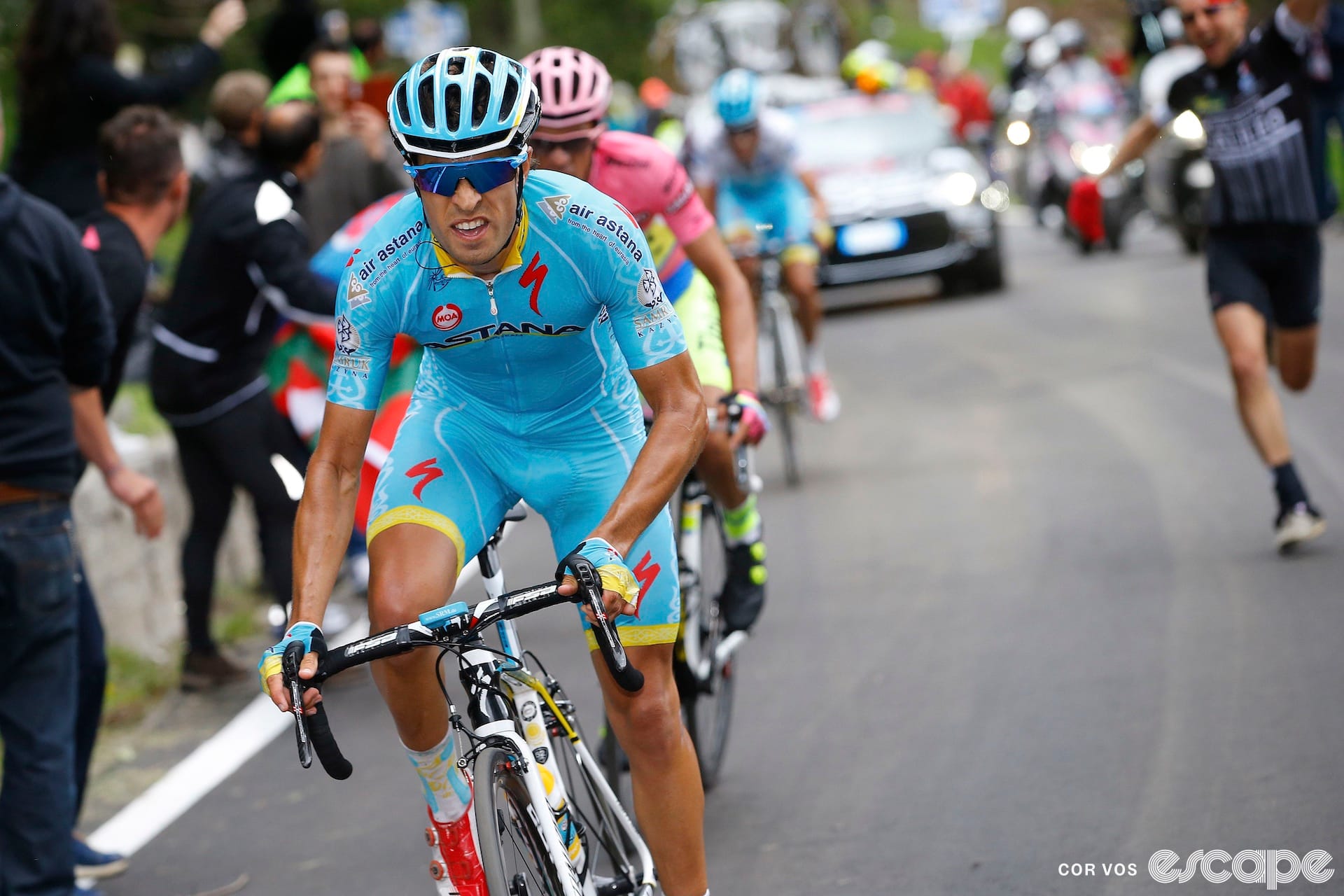
Or in the 2017 Tour, where I was one second off the podium, if I hadn't let just a few little seconds get away from me on other days helping [Chris] Froome, I don't know what position I might have finished, if I could have been third or second. Those questions stayed with me.
DC: Is it hard to get over something like that?
ML: At the time, you don't appreciate it, because you see that you're strong and you say, 'It doesn't matter. Next year I'll come back and do better.' But then the following year you get to the start and there are new rivals, new people, younger people and well, every year it's harder to get back there. With time, you miss not having been able to improve on that.
DC: What do you wish the world knew about the Basque Country?
ML: Maybe that our first impression that we give is that of closed people, people who are a little mistrustful – but deep down we are simple and people who, once we open doors, we open them wide and give everything we have.
DC: You spent a few years as the President of the Fundación Euskadi, the Basque Cycling Foundation. How did that come together and what is your connection now?
ML: The Fundación Euskadi is a good project that has developed cycling in the Basque Country for many years. Seven years ago, I think it was, it was going to disappear, and a bit because of my moral obligation, my dedication to and my love of the [Basque] Country, I decided to support it and relaunch it. I didn't let the team disappear.
We went back to being a Continental team, a professional team, and then what happened was that due to the incompatibility because I am a rider, I couldn't be president over a foundation in which there was a team that rides in races in which I also participated, I had to step aside. But I was calm because it was in good hands and the project continues, and today they have returned to racing the Vuelta a España for example, so I am very happy to see them there even though my connection is not possible right now.
DC: What do you think you would be doing for a living if not cycling or anything else in sport?
ML: If I weren't a cyclist, I think I would have finished my studies. I started university in technical architecture, so I would have liked to finish that and do something in construction.
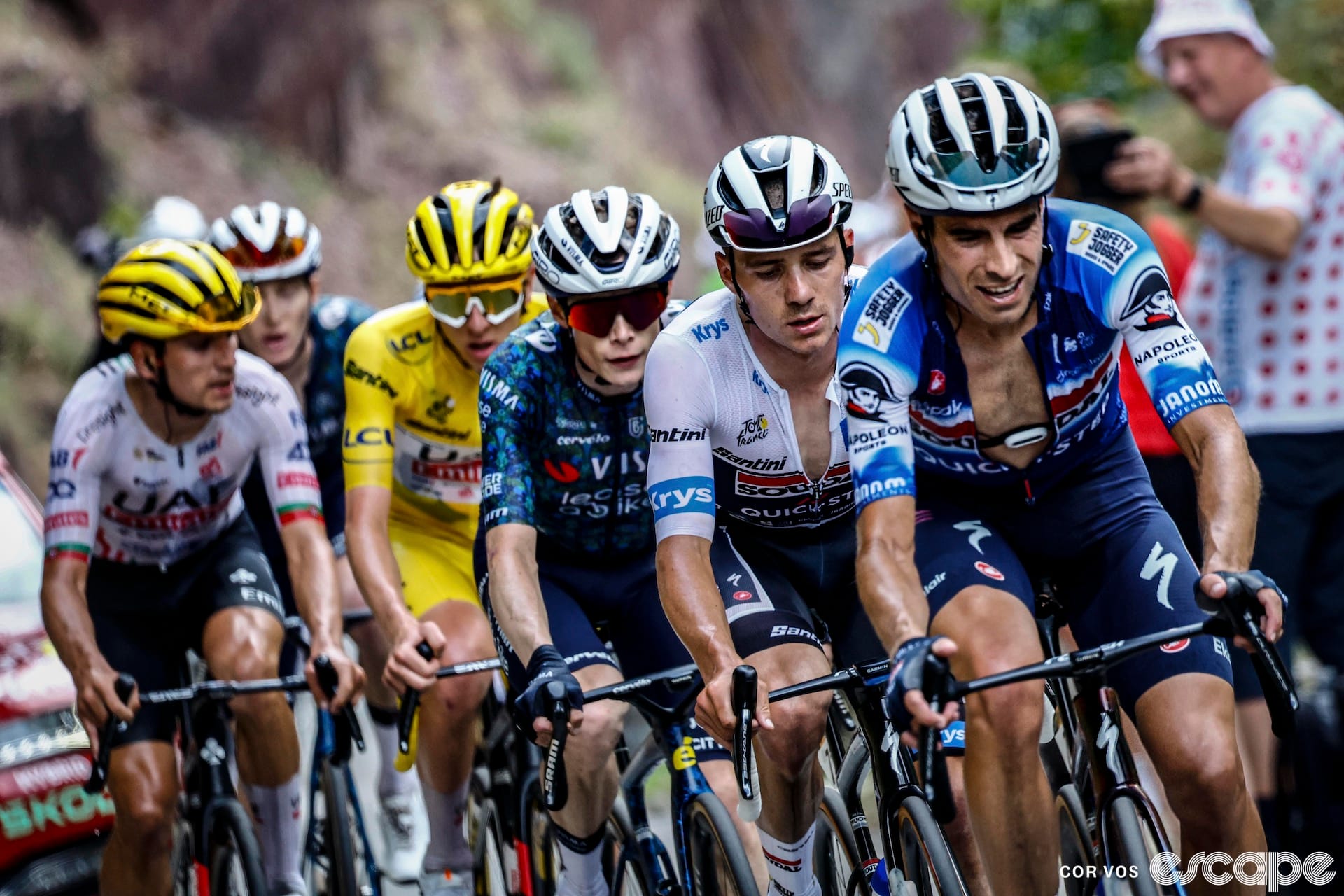
DC: If I asked your friends to describe you without mentioning cycling, what do you think they would say?
ML: I think they'd just say I am just one more of them. Just another kid from town, another friend. No one special, not standing out for good or bad. An ordinary guy.
DC: Is there a TV show you like to put on as "comfort food" watching no matter where you are?
ML: I don't watch a lot of television but there is a pretty famous cooking show here in Spain, MasterChef. It is one of the few I watch. I really like the discipline that kitchen requires, and it's entertaining.
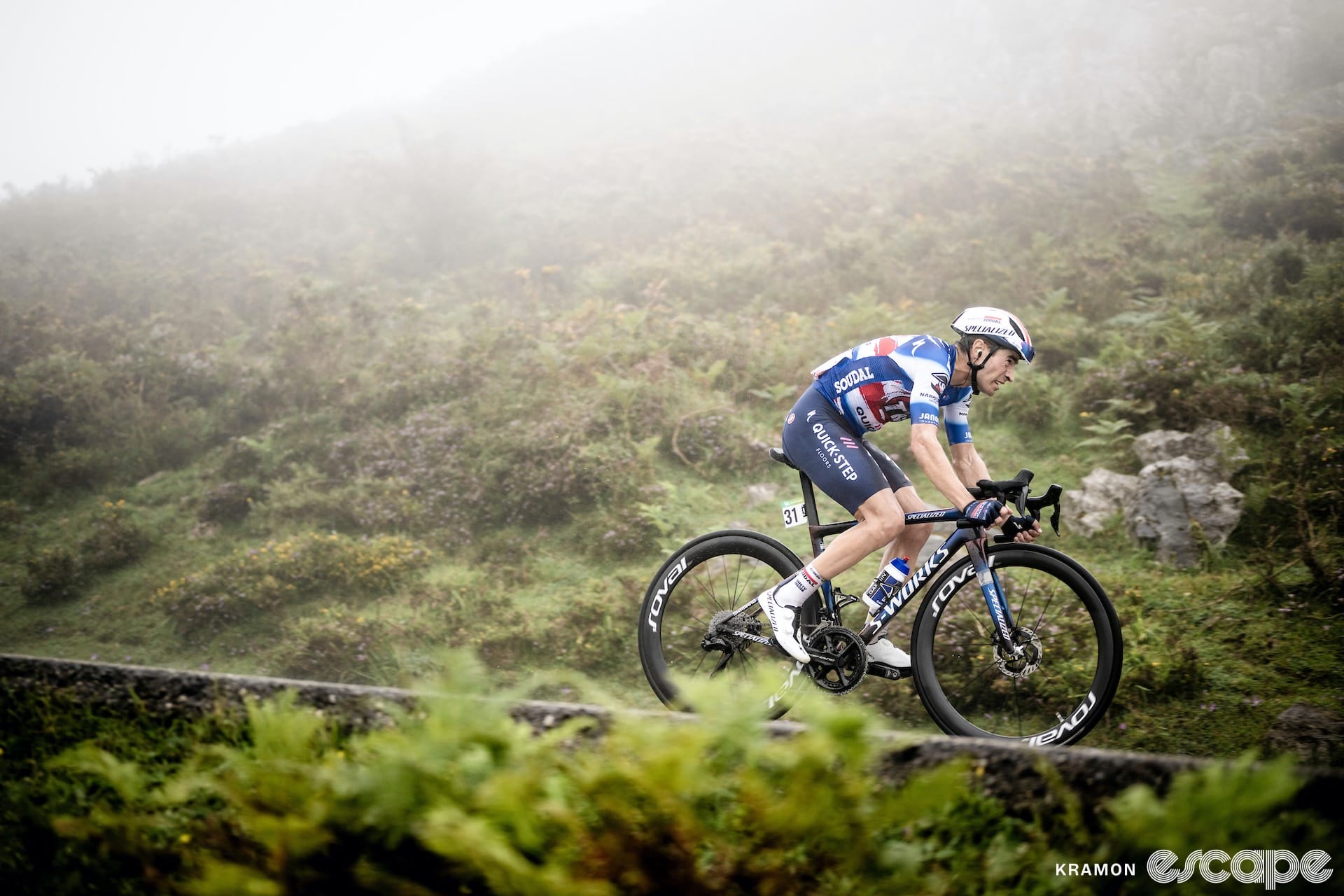
DC: What about music? Do you have a favorite artist or genre?
ML: I listen to all types of music. Most of all contemporary music, pop ... Some days I'm listening to Mexican rancheras, and some days it's the latest Shakira song ... music that gives off a bit of joy and music for the moment.
DC: If you've just scored a huge win, what are you eating to celebrate?
ML: Here, almost always, steak. A steak with some peppers and some potatoes, a little salad and good wine, which is a must. And a little cheese for dessert. That is typical here and it's what I like most.
Did we do a good job with this story?

